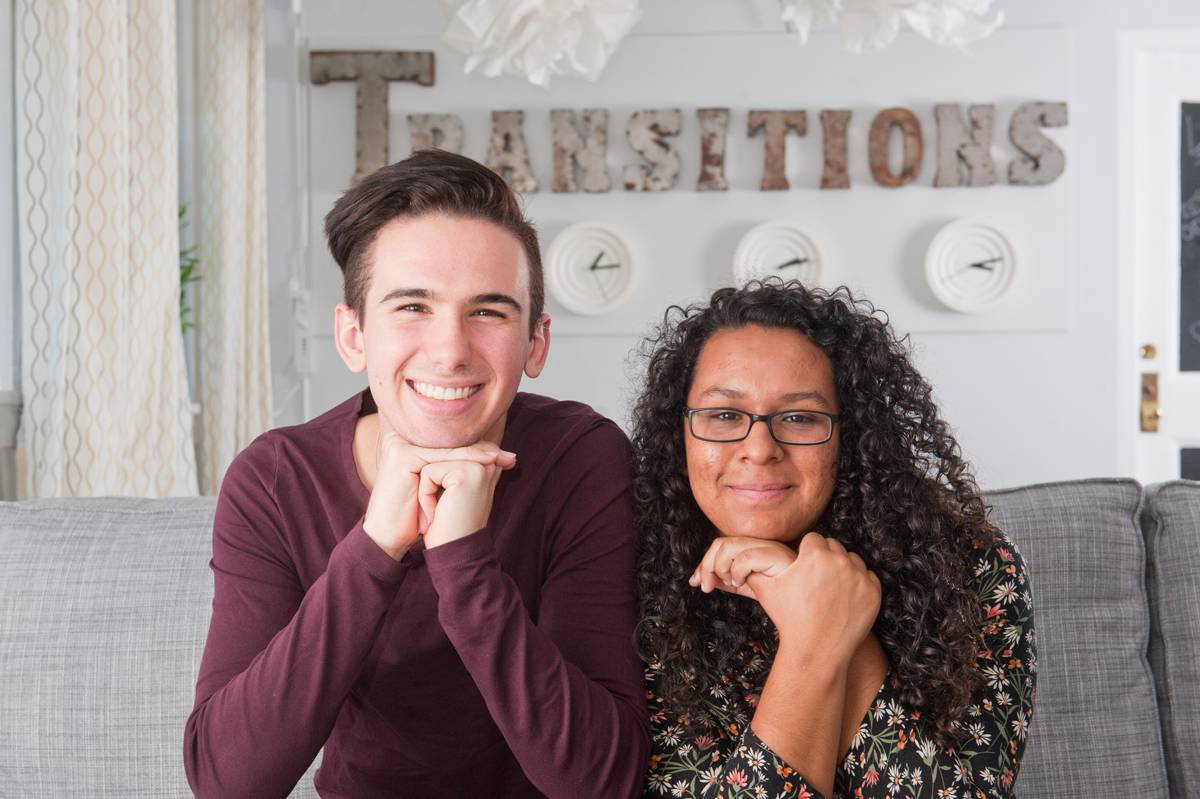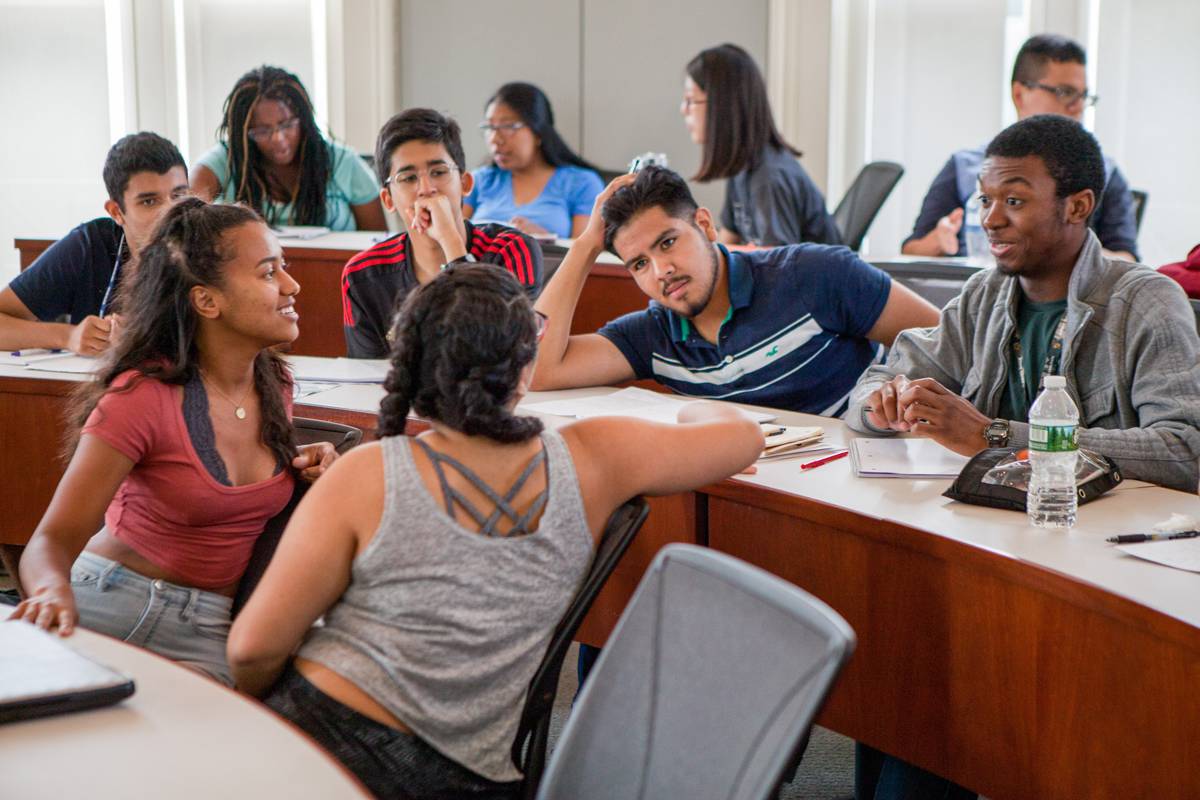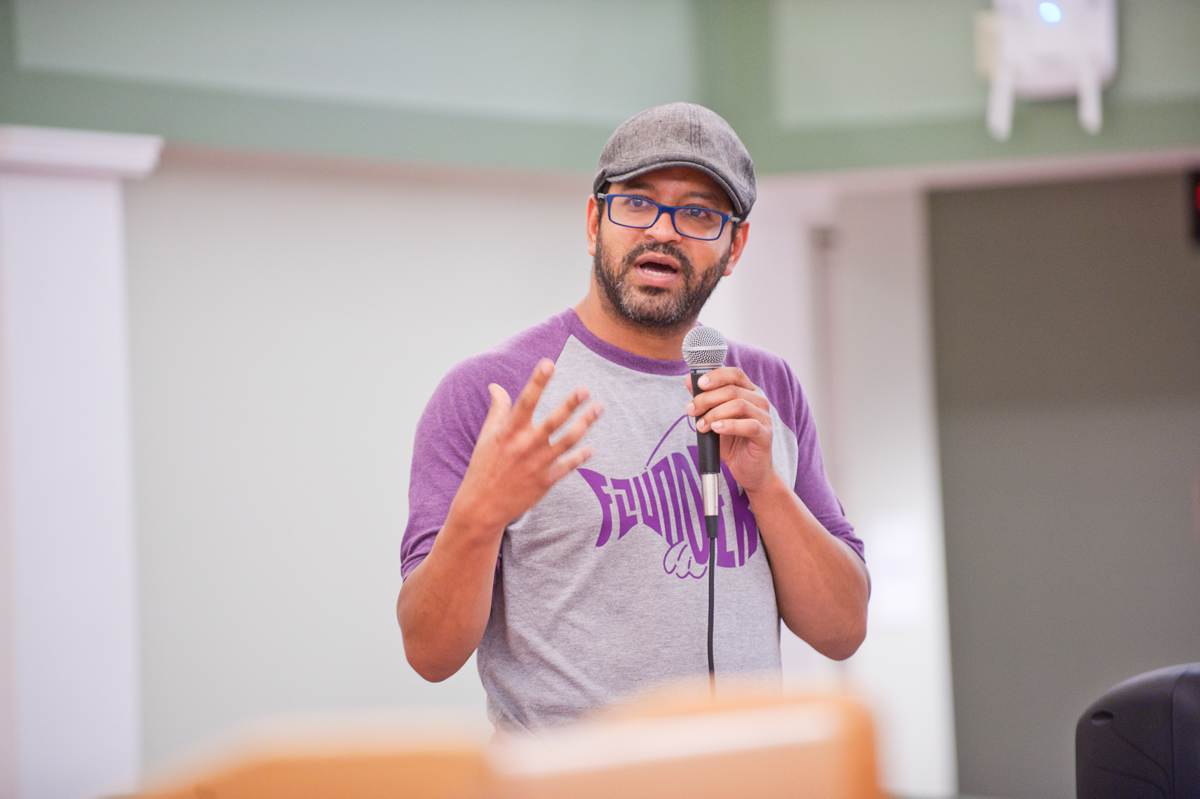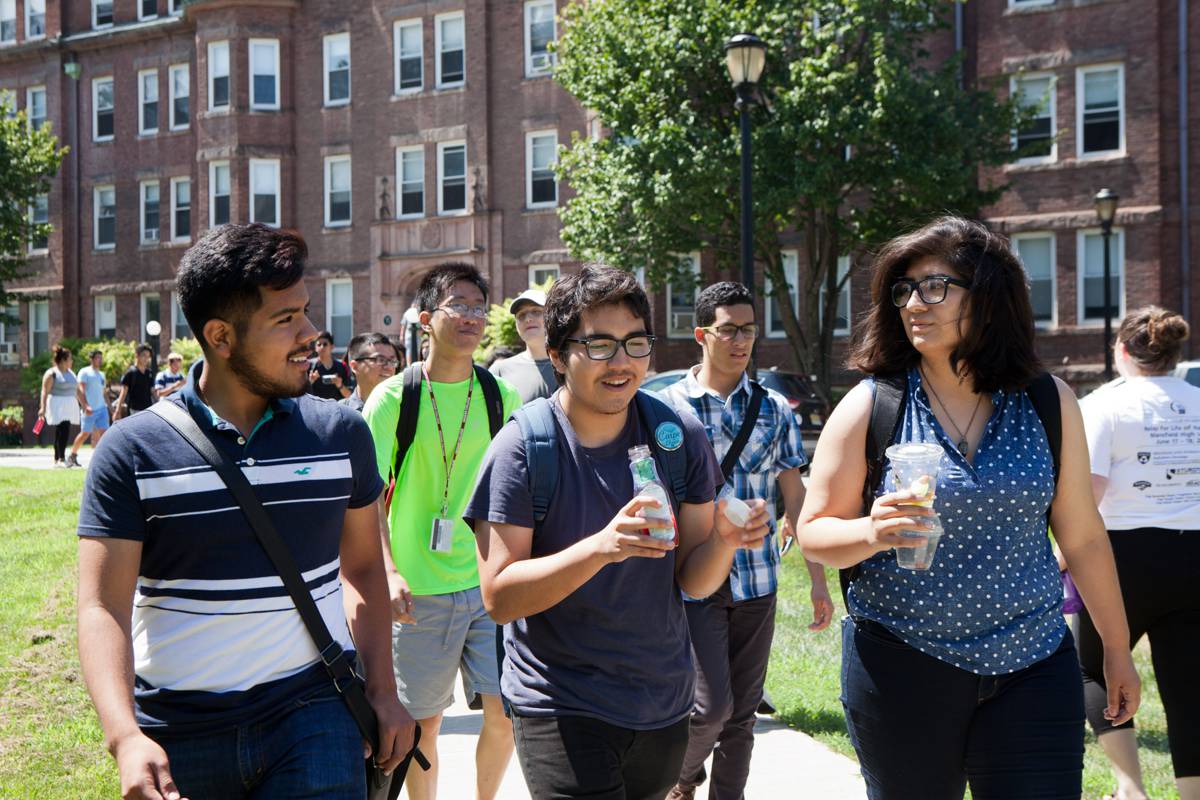TransitionsA Program for First Generation, Low Income, and Undocumented Students
TransitionsA Program for First Generation, Low Income, and Undocumented Students
If you are the first person in your family to go to college, or if you come from a low income family, or if you are an undocumented student, what is it like to attend a top-tier liberal arts college like Vassar?

“It can be difficult,” says Kayla Gonzalez, a sophomore from Los Angeles, CA. “When you make friends who are not first generation, low income, or undocumented, it can be awkward. They have the ability to do all of these things--like, they go out to eat so often, and you don’t want to say you can’t afford it, so you stay back. Also, just hearing the way people talk about their lives sometimes is really weird. They talk about their summer home or their family vacations, and it’s just really weird how different our lives are. Or in class, if the discussion is about
Vassar’s Transitions program was created to support students who, like Gonzalez, identify as first generation, low income, and/or undocumented. Transitions offers them a six-day pre-orientation program that includes classes in three different academic departments, introductions to resources such as the library and career development, opportunities to connect with faculty members who in many cases were themselves first generation or low income, and perhaps most important, team-building experiences that create bonds of friendship that will support them through their first year and beyond.

“Transitions week is such a beautiful experience,” says Gonzalez. “You’re all together and bonding and building these connections that you know you can come back to. When everybody else arrives for First Year Orientation, yes, you are overwhelmed. But you also have people to go through it with.”
The Transitions program began in 2010 in response to a proposal drafted by a group of first generation, low income students and their faculty mentors, calling for greater support from the college. That first year, Transitions offered a three-day pre-orientation program for first generation, low income students. In the years since, the program has expanded to include undocumented students and has evolved into a full-fledged support system that begins with a six-day pre-orientation program, continues throughout the participants’ Vassar careers with an ongoing peer mentoring program, and culminates with a celebratory reception for graduating Transitions students. The plan is to eventually include Transitions alums as mentors as well and to create a network of Transitions graduates who can provide ongoing support to each other as they move forward in their lives and careers.
“We had 46 students attend the Transitions pre-orientation program this year,” says Luis Inoa, Associate Dean of Students, Director of Residential Life, and Director of Transitions, “but there is another set of students whom we invited but who did not participate. We consider all students who identify as first generation, low income, or undocumented as part of the Transitions family, whether they participated in the pre-orientation program or not. And we are attempting to reach out to all those students so that any student who identifies with any of those markers can see Transitions as a resource.”
Joseph Szymanski, a senior drama major, participated in the pre-orientation program as a freshman and is one of this year’s Transitions interns. “My own Transitions experience was wonderful,” says Szymanski. “One of my fears coming in was, am I going to make friends? Am I going to have a support system? And the pre-orientation program created a community that was really like a family. It’s really a special connection that students make through this program.”
This year, Szymanski and Gonzalez spent the summer working in the Office of Residential Life to plan this year’s pre-orientation program. “We booked the lunches and the dinners, and we were in touch with all of the students to get them ready, so we invested a lot of time,” says Szymanski. “But what surprised me was the effect of the pre-orientation program on me! I went into it thinking, okay, I’m a senior, I’m going to do all I can to provide my knowledge and experience to these students and help change their lives if possible. And they ended up changing my life! I have this huge group of people I wasn’t expecting to become really close friends with so quickly.”
Gonzalez, too, found the experience meaningful. “Knowing that you’re helping students who come from the same type of background and who have the same anxieties that you had, and knowing that you’re doing your best to take away those worries, is such a rewarding experience,” she says. “During the summer, you’re their first point of contact, and they’re emailing you with all of these questions and worries, and you just start building relationships even then.”

The number of first generation, low income, and undocumented students at Vassar has increased steadily since Catharine B. Hill, a higher education economist, became president of Vassar in 2006. Hill took as her primary challenge increasing the socioeconomic diversity of the student body, and she did. During her tenure, 2006-2016, the number of Vassar students receiving federal Pell grants increased by 11 percent, more than any other college in the “most competitive” category in Barron’s Profile of American Colleges. Largely in recognition of her leadership, the Jack Kent Cooke Foundation awarded Vassar its $1 million Cooke Prize for Equity in Educational Excellence.
With support from the Cooke prize, the Transitions program has been able to expand significantly. This fall, the Transitions Living Room opened its doors, providing a comfortable space in Josselyn House for Transitions students, friends, and allies to gather. The Hermanx peer mentoring program; the Senior Summit, a two-day career and networking event for seniors; Transitions, Too, a program to include first generation, low income, and mixed-residency status faculty and staff in the Transitions family; the Senior Reception; and Beyond the Gates, an initiative to reach out to first generation, low income, and undocumented students in the Hudson Valley—“None of these would have been possible without that gift,” says Inoa.
“Something that got off the ground as a three-day program in response to a proposal from our students has evolved into a resource that supports them through all four years and beyond. I think of Transitions as a space where first generation, low income, and undocumented students can find comfort and conversation, but it’s also a space that can inform and develop policy, not just for Vassar but for other colleges that are interested in supporting these students,” says Inoa. “I don’t think I could have imagined that seven years ago, but I do now.”
